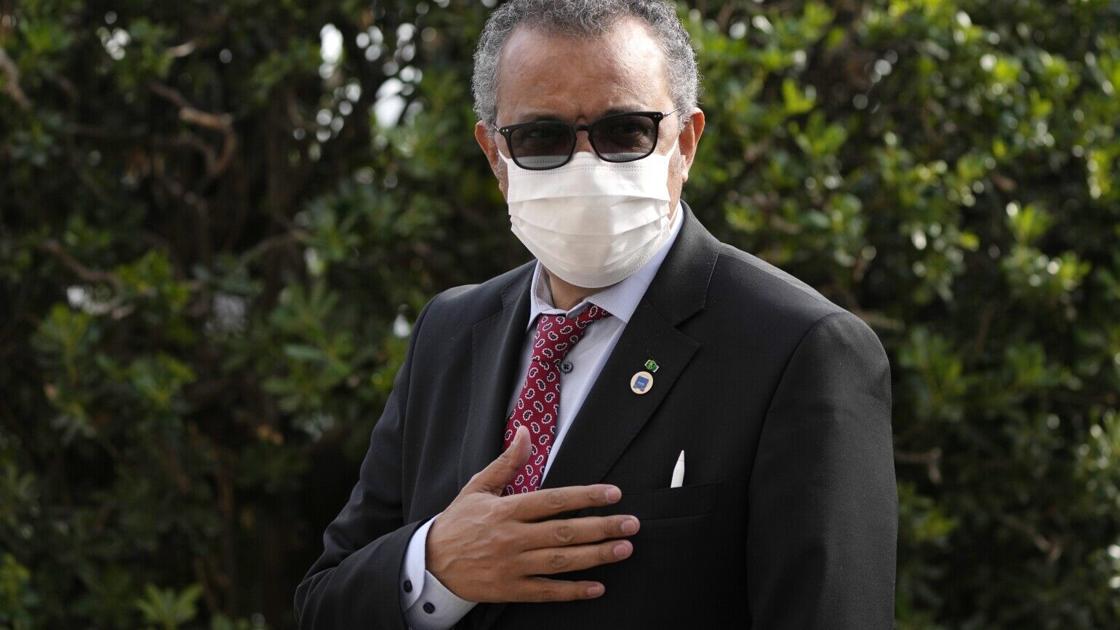WHO reopens applications for COVID-19 origins team after conflict of interest claims

The World Health Organization isn’t done picking members for its new COVID-19 origins panel after some scientists it initially picked drew scrutiny over claims of conflicts of interest, including six who were part of the original failed effort earlier this year and others with connections to EcoHealth Alliance’s Peter Daszak.
The WHO announced Monday it would still accept applications for its Scientific Advisory Group for the Origins of Novel Pathogens, saying it was “re-opening the call for applications for three additional days to encourage additional applications from the fields of social science/anthropology/ethics/political science and biosafety/biosecurity.”
The WHO said it welcomes applicants with “significant expertise” in “technical disciplines,” such as field research, virology, and food safety, as well as “occupational health and safety” and “laboratory safety.”
The announcement reiterated that “members of WHO advisory groups must be free of any real, potential, or apparent conflicts of interest.”
U.S. Right to Know, a nonprofit public health transparency group, sent a letter to the WHO last week arguing that 10 of the proposed team members did not meet the WHO’s membership standards. The group called the proposed team “unbalanced” and said that “scientists from diverse fields of study, not merely infectious disease, should be included … to offset any conflicts of interest from zoonotic origins infectious disease researchers.”
The WHO-China study released in early 2021 deemed the lab leak hypothesis “extremely unlikely” while contending that a jump from animals to humans was most likely. The WHO-China report was widely considered a failure, in part due to a lack of access to key data and Chinese influence over the investigation. Meeting minutes from discussions between lab scientists and the WHO-China team reveal lab leak concerns were referred to as “conspiracy theories.”
INTEL COMMUNITY RELEASES SPY AGENCY’S “CASE” FOR WUHAN LAB LEAK
In July, WHO Director-General Tedros Adhanom Ghebreyesus said there was a “premature push” to dismiss the lab escape possibility.
Despite the formation of a new team, the Chinese government has repeatedly shot down suggestions for a second investigation.
Daszak, a longtime collaborator with the Wuhan Institute of Virology, was part of the first team, but he is not on this one. Daszak maintained a long working relationship with Wuhan’s “bat lady” Shi Zhengli, sending her at least $600,000 in National Institutes of Health funding for bat coronavirus research. The NIH recently concluded that he violated the terms of his grant while doing bat coronavirus experiments, which he denies.
U.S. Right to Know said 10 scientists picked for the team in October should be disqualified, beginning with Dr. Supaporn Wacharapluesadee, a subcontractor on a multimillion-dollar NIH grant to EcoHealth who has worked with Daszak for a decade. The group argued that scientists’ ties to EcoHealth could “impair their judgment.”
The group also pointed out that another proposed team member, Dr. Christian Drosten, signed both the February 2020 and July 2021 letters in the Lancet, which cast doubt on the lab leak hypothesis. Daszak helped organize the original Lancet letter, which defended China and dismissed the lab leak hypothesis as a conspiracy theory. This summer’s Lancet letter defended the early 2020 one.
The organization also highlighted comments made by Dr. Kathrin Summermatter, another proposed member, who called the possibility that COVID-19 “escaped from a laboratory” one of a number of “typical conspiracy theories.”
Six of the 17 international members of the joint WHO-China study team from early in 2021 are part of the WHO’s newly announced team, and U.S. Right to Know said that Dr. Marion Koopmans and five others who had participated in that “botched” panel should also be disqualified.
U.S. Right to Know pointed out that Koopmans had dismissively included a “lab in Wuhan” in her list of “debunked hypotheses,” which also included “snake origin” and “a meteorite.” She also claimed that “we found not a grain of evidence for a lab escape theory.”
Another of the original six, Dr. Yun-Gui Yang, was the Chinese head of the joint WHO-China team’s molecular tracing group earlier this year and cast doubt on the idea COVID-19 originated in China. Yang is the deputy director at the Beijing Institute of Genomics at the Chinese Academy of Sciences. The Chinese Academy of Sciences oversees the Wuhan Institute of Virology.
CLICK HERE TO READ MORE FROM THE WASHINGTON EXAMINER
U.S. Right to Know put forward 10 different scientists to replace the 10 it believes have conflicts of interest. Among them are Dr. Jesse Bloom, an evolutionary biologist at Fred Hutchinson Cancer Research Center who discovered this summer that the NIH deleted its record of the genetic sequencing of COVID-19 cases from early in the pandemic, apparently at the request of Chinese researchers, and Dr. Richard Ebright, a professor of chemistry and chemical biology at Rutgers University who has long argued that a Wuhan lab leak is a plausible hypothesis in need of further study.
A group of 13 scientists, academics, and advocates also signed an open letter to the WHO last week, echoing similar points and also calling for Wacharapluesadee, Summermatter, and Koopmans to be disqualified because they are “critically conflicted and/or overly biased.”
Original Location: WHO reopens applications for COVID-19 origins team after conflict of interest claims
Washington Examiner Videos
[embedded content]


